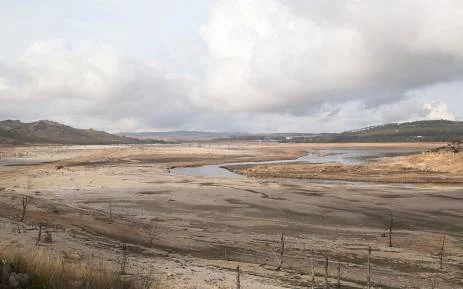Drought-ravaged terrein in Cape Town. Photo: Bertram Malgas/EWN
By ESENDOM
January 23, 2018
- City of CT Accused of Lying About Water Crisis
Cape Town Cycle Tour aiming to use no city water as #DayZero approaches
Fried not boiled: how Cape Town restaurants are responding to the water crisis
South Africa, like most places on earth, is facing a major ecological crisis as water is running out in Cape Town, South Africa’s second most populous city.
A severe draught is in part to blame for the water crisis in Cape Town. However, the legacy of colonialism and the racist Apartheid system overseen by a white minority against the native African population might have had a role in laying the foundation for ecological disturbances as the European-descended elite controlled natural resources such as water and land from 1948 to 1991.
The city is known as a tourism mecca. Every year, almost 2 million tourists visit Cape Town’s beaches. This is in contrast to what the locals experience as ordinary people lack access to basic services and clean water.
Government officials told residents in this coastal city to ration water consumption. Officials are also preparing residents for the worst. According to Reuters, city authorities assigned April 22 as ‘Day Zero’, the day when water will run out.
The African chapter of the World Wildlife Fund (WWF) released a Day Zero information pack to help prepare Capetonians:
At present, Day Zero is calculated to be about three months away on 21 April. This day is calculated based on knowing how much water is in the big 6 dams that feed Cape Town and the Western Cape Water Supply System, and knowing how much water is being used by the city’s residents, by agriculture and what is evaporating out of the dam. Day Zero is a worst-case scenario but it has been inching closer since the City of Cape Town began predicting it.
On Day Zero, the city will move into full-scale Emergency Stage 3. This means that water to households and businesses will be cut off. There will not be enough water in the system to maintain normal services and the taps (and toilets) will run dry. Only vital services will still receive water. These are hospitals and clinics, stand-pipes in informal settlements and the 200 points of distribution (PoDs) where people can collect their allocated 25 litres per person."
Cape Town is currently under a level 6 water restriction that reduces water usage by agricultural users by 60%, according to Eyewitness News.
Read the full WWF Africa Day Zero document here.
____

